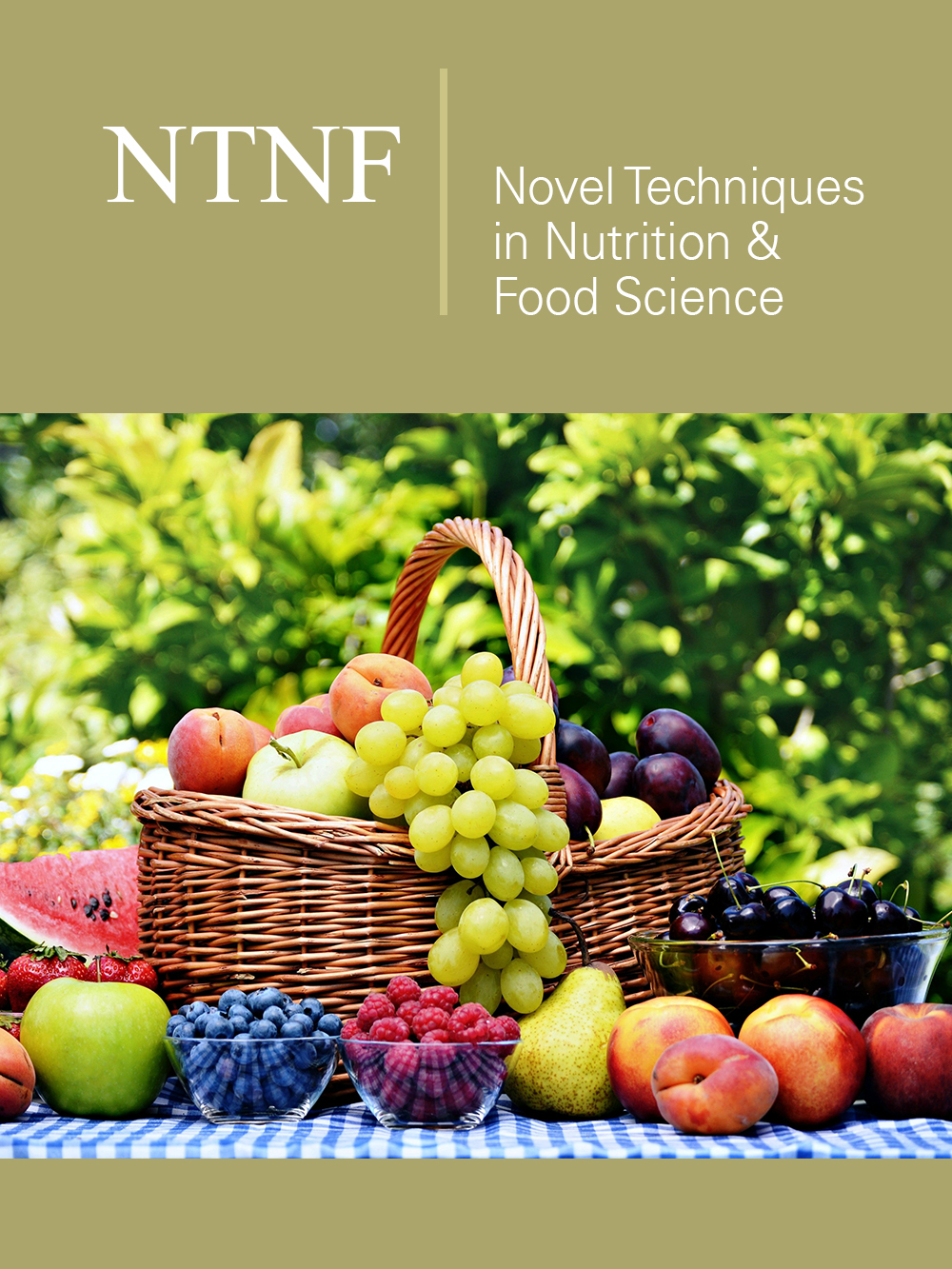- Submissions

Abstract
Novel Techniques in Nutrition and Food Science
Prospective Study: Sea Cucumber Flour as a Food Supplement
-
Open or CloseFurlan EF*
Fisheries Institute, Bartolomeu de Gusmão Avenue 192, Ponta da Praia, Santos-SP, Brazil
*Corresponding author:Erika Fabiane Furlan, Fisheries Institute, Bartolomeu de Gusmão Avenue 192, Ponta da Praia, Santos-SP, Brazil
Submission: March 14, 2023;Published: April 21, 2023

Volume7 Issue2 April , 2023
Abstract
Sea cucumbers (holoturia) are considered a dietary delicacy, being widely used in medicinal healing by Asians over the centuries; they are rich in bioactive compounds with the potential to exert several actions in the body, namely: Anticancer, anticoagulant, antihypertensive, anti-inflammatory, antimicrobial, antioxidant, antithrombotic and antitumor. The sea cucumber drying process, as used for the flour production, maintains their functional properties. Thus, in view of the benefits associated with the consumption of sea cucumber to human health, evidenced by scientific research, a market diagnosis was carried out for its flour as a food supplement. This study aimed to carry out market research to assess the interest of Brazilians in the consumption of sea cucumber flour. Market prospecting research for sea cucumber flour was carried out using the survey monkey tool. The structured questionnaire consisted of ten closed questions, which were answered by 100 people. The public interviewed was heterogeneous: 36% between 15 and 25 years old; 11% between 26 and 35 years old; 12% between 36 and 45 years old, 18% between 46 and 55 years old and 23% of the public over 55 years old. About 97% claimed to have never consumed sea cucumbers or derivatives, but 91% expressed interest in consuming sea cucumber-based flour, given its nutraceutical potential. Among the levels of interest: 33% reasonable, 46% interested and 13% very interested; and 67% indicated the preferential acquisition in capsule form. Regarding the cost for 100g of the product: 64% would pay up to 3.89 dollars, 33% between 4.08 and 5.83 dollars and only 3% would pay more than 5.83 dollars. As for the frequency of consumption: 53% would consume daily. Conclusion: The research indicated market potential for sea cucumber flour, especially in capsules, as a food supplement. However, most of these animals come from extractive fisheries. Thus, it is a challenging task to reconcile the conservation need with the socioeconomic importance of fisheries. In this sense, to encourage the production of these organisms through aquaculture and the sea cucumber flour production with added value, will meet the prospects of the current market that seeks greater healthiness through nutrition and/or supplementation and foods with a lower carbon emission.
Keywords:Seafood; Nutraceuticals; Added value; Conscious consumption; Sustainability
 a Creative Commons Attribution 4.0 International License. Based on a work at www.crimsonpublishers.com.
Best viewed in
a Creative Commons Attribution 4.0 International License. Based on a work at www.crimsonpublishers.com.
Best viewed in 







.jpg)






























 Editorial Board Registrations
Editorial Board Registrations Submit your Article
Submit your Article Refer a Friend
Refer a Friend Advertise With Us
Advertise With Us
.jpg)






.jpg)














.bmp)
.jpg)
.png)
.jpg)










.jpg)






.png)

.png)



.png)






